Suzuki Vitara vs Toyota Prius - Differences and prices compared
Compare performance (184 HP vs 223 HP), boot space and price (23600 £ vs 39400 £ ) at a glance. Find out which car is the better choice for you – Suzuki Vitara or Toyota Prius?
Costs and Efficiency:
Price and efficiency are often the first things buyers look at. Here it becomes clear which model has the long-term edge – whether at the pump, the plug, or in purchase price.
Suzuki Vitara has a clearly advantage in terms of price – it starts at 23600 £ , while the Toyota Prius costs 39400 £ . That’s a price difference of around 15849 £.
Fuel consumption also shows a difference: Toyota Prius manages with 0.50 L and is therefore significantly more efficient than the Suzuki Vitara with 5 L. The difference is about 4.50 L per 100 km.
As for electric range, the Suzuki Vitara performs convincingly better – achieving up to 426 km, about 340 km more than the Toyota Prius.
Engine and Performance:
Power, torque and acceleration are the classic benchmarks for car enthusiasts – and here, some clear differences start to show.
When it comes to engine power, the Toyota Prius has a to a small extent edge – offering 223 HP compared to 184 HP. That’s roughly 39 HP more horsepower.
In acceleration from 0 to 100 km/h, the Toyota Prius is hardly perceptible quicker – completing the sprint in 6.80 s, while the Suzuki Vitara takes 7.40 s. That’s about 0.60 s faster.
In terms of top speed, the Suzuki Vitara performs slight better – reaching 190 km/h, while the Toyota Prius tops out at 177 km/h. The difference is around 13 km/h.
Space and Everyday Use:
Beyond pure performance, interior space and usability matter most in daily life. This is where you see which car is more practical and versatile.
Both vehicles offer seating for 5 people.
In curb weight, Suzuki Vitara is evident lighter – 1255 kg compared to 1620 kg. The difference is around 365 kg.
In terms of boot space, the Suzuki Vitara offers evident more room – 375 L compared to 284 L. That’s a difference of about 91 L.
When it comes to payload, Suzuki Vitara a bit takes the win – 425 kg compared to 375 kg. That’s a difference of about 50 kg.
Who wins the race in the data check?
The Toyota Prius is clearly superior overall in the objective data comparison.
This result only shows which model scores more points on paper – not which of the two cars feels right for you.
Costs and Consumption
View detailed analysis
Engine and Performance
View detailed analysis
Dimensions and Body
View detailed analysis

Toyota Prius
Suzuki Vitara
The Vitara is a city-smart SUV with a cheeky streak of off-road promise, perfect for drivers who want practicality without pretense. It’s honest, easy to live with and surprisingly likeable, a sensible companion for everyday adventures and weekend escapes.
details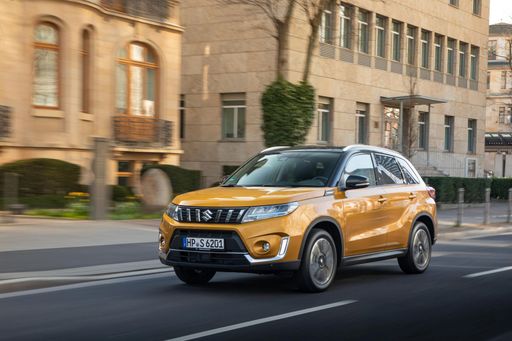
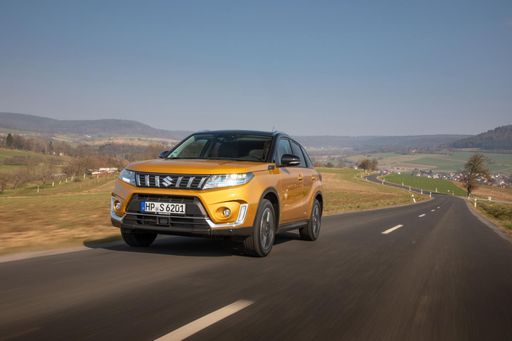
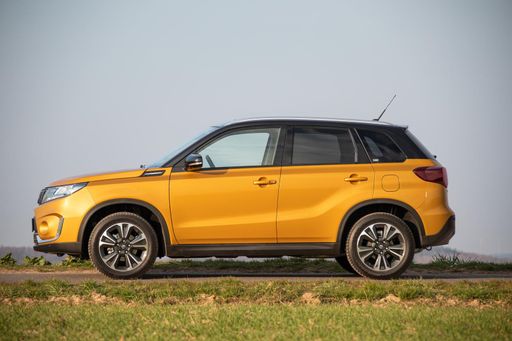
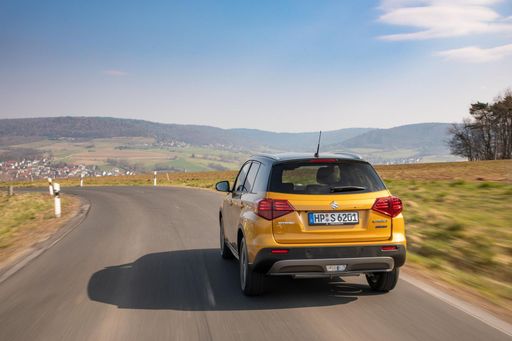
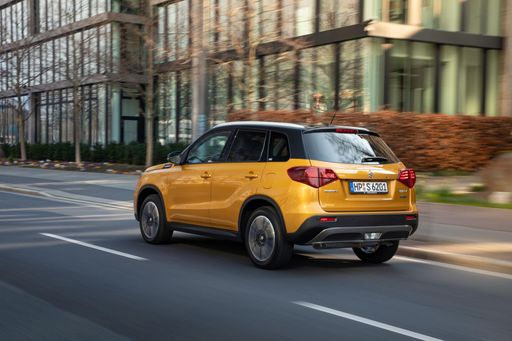
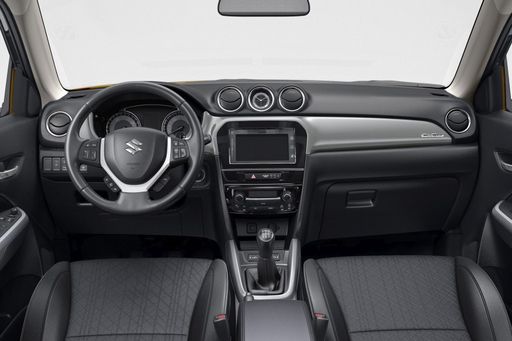
Toyota Prius
The Prius glides through traffic like a wise commuter's secret weapon, balancing miserly running costs with an unflappable sense of reliability. It's not a thrill seeker, but its roomy cabin, sensible packaging and low-stress driving personality make it a brilliant choice for buyers who value peace of mind over pulse-raising performance.
details



Costs and Consumption |
|
|---|---|
|
Price
23600 - 36800 £
|
Price
39400 - 45800 £
|
|
Consumption L/100km
5 - 5.9 L
|
Consumption L/100km
0.5 - 0.7 L
|
|
Consumption kWh/100km
14.9 - 16.6 kWh
|
Consumption kWh/100km
-
|
|
Electric Range
344 - 426 km
|
Electric Range
72 - 86 km
|
|
Battery Capacity
-
|
Battery Capacity
-
|
|
co2
0 - 138 g/km
|
co2
12 - 17 g/km
|
|
Fuel tank capacity
47 L
|
Fuel tank capacity
40 L
|
Dimensions and Body |
|
|---|---|
|
Body Type
SUV
|
Body Type
Hatchback
|
|
Seats
5
|
Seats
5
|
|
Doors
5
|
Doors
5
|
|
Curb weight
1255 - 1935 kg
|
Curb weight
1620 - 1630 kg
|
|
Trunk capacity
289 - 375 L
|
Trunk capacity
284 L
|
|
Length
4185 mm
|
Length
4599 mm
|
|
Width
1775 - 1800 mm
|
Width
1782 mm
|
|
Height
1595 mm
|
Height
1470 mm
|
|
Max trunk capacity
1046 - 1120 L
|
Max trunk capacity
-
|
|
Payload
375 - 425 kg
|
Payload
365 - 375 kg
|
Engine and Performance |
|
|---|---|
|
Engine Type
Petrol MHEV, Full Hybrid, Electric
|
Engine Type
Plugin Hybrid
|
|
Transmission
Manuel, Automatic
|
Transmission
Automatic
|
|
Transmission Detail
Manual Gearbox, Automated Manual, Automatic Gearbox
|
Transmission Detail
CVT
|
|
Drive Type
Front-Wheel Drive, All-Wheel Drive
|
Drive Type
Front-Wheel Drive
|
|
Power HP
110 - 184 HP
|
Power HP
223 HP
|
|
Acceleration 0-100km/h
7.4 - 12.7 s
|
Acceleration 0-100km/h
6.80 s
|
|
Max Speed
180 - 190 km/h
|
Max Speed
177 km/h
|
|
Torque
193 - 307 Nm
|
Torque
-
|
|
Number of Cylinders
4
|
Number of Cylinders
4
|
|
Power kW
81 - 135 kW
|
Power kW
164 kW
|
|
Engine capacity
1373 - 1462 cm3
|
Engine capacity
1998 cm3
|
General |
|
|---|---|
|
Model Year
2024 - 2026
|
Model Year
2023
|
|
CO2 Efficiency Class
D, C, E, A
|
CO2 Efficiency Class
B
|
|
Brand
Suzuki
|
Brand
Toyota
|
What drivetrain options does the Suzuki Vitara have?
Available configurations include Front-Wheel Drive or All-Wheel Drive.
